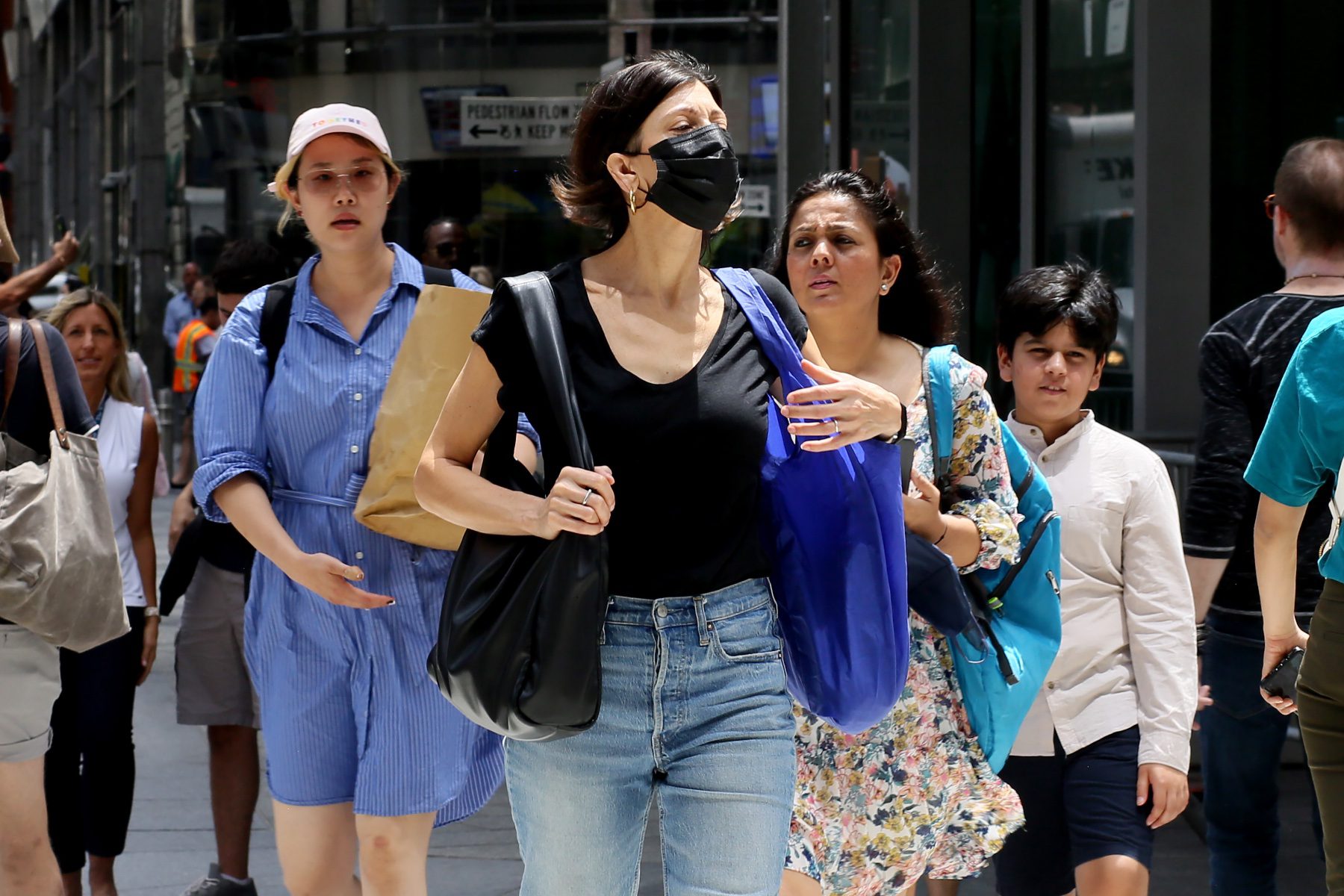Backwards. That’s the sentiment many women expressed when asked to describe how they felt things were going for women in the country.
Last week, Navigator Research Group, a polling firm that provides messaging to progressives, held three focus groups in Michigan, Minnesota and Georgia with a diverse group of 20 women between the ages of 25 and 45 who identified as either Democrat or soft partisan, meaning they didn’t strongly align with either political party. The 19th was granted exclusive access to listen in on the discussions.
The aim of the focus groups was to better understand what might animate these potential voters ahead of the midterm elections, particularly as it related to abortion access, paid family leave and equal pay.
Many voiced a feeling that some progress had been made for women over the last 20 years, with some respondents expressing that they were personally doing pretty well, despite the toll the pandemic had taken on the economy. Many also said inflation was impacting their budgets.
They also felt strongly that the Supreme Court’s decision to end the constitutional right to an abortion had swiftly erased a lot of those wins.
One Michigan woman put it succinctly: “While things have not been historically great for women, those few freedoms we’ve had, it feels like they are trying to take those away,” she said. “Our freedoms are under attack.”
-
More from The 19th
- ‘I see myself in her’: Brittney Griner’s Russia trial resonates with queer Black women and nonbinary people
- Vermont is poised to make history by being the last state to make history
- Few abortion bans have fetal anomaly exceptions — even when ‘carrying a child you know is going to die’
Another respondent from Minnesota said, “It felt like we were … starting to gain more power, like during [the] #MeToo [movement], people were able to speak out and not be afraid anymore.” But, she added: “I feel like they snatched every bit of confidence and power that we felt like we had gained and snatched it, and it was like trying to put us back in our place.”
Overall, abortion access stood out as a rallying issue for the women. Bryan Bennett, senior director of polling and analytics for Navigator Research, said this felt markedly different from other focus groups held directly after the leaked draft opinion indicating the Supreme Court was intending to overturn Roe v. Wade. “In those groups there was the same similar deep anxiety about the direction of the country. [But] concern about abortion rights was not necessarily top of mind after the leaked decision,” he said.
According to a poll conducted by Gallup at the end of July, 8 percent of Americans mention abortion as the most important problem in the country, which is the highest percentage the topic has garnered since Gallup began tracking the issue in 1984.
Lelaine Bigelow, the vice president for social impact and congressional relationships for the National Partnership for Women and Families, also listened to the focus groups and said it stuck out to her that women really want to hear from politicians on this issue.
“Before the leak, lawmakers wouldn’t think about championing this issue because they weren’t sure how it would play out,” she said. Now, “women want to hear you say that word and they want to understand where you stand.”
A few women in the groups expressed concerns for their children, particularly daughters who would be growing up in a post-Roe America. “Women’s rights really matter to me, and that’s what I feel super passionate about raising a 10-year-old daughter,” said one Michigan mother. “I just want all of her rights intact as she gets older.”
Other mothers expressed fears over sending their children to school and worried about school shootings and the general safety of their kids.
When the questioning switched to how women feel about paid family and medical leave, they all expressed unanimous support for the policy. The benefit usually covers paid time off for weeks at a time so employees can take care of sick family members, or for a personal illness, as well as parental leave.
Two women in separate focus groups noted that having paid family or medical leave would make them feel that their employers recognize their humanity.
“It’s a feeling that you are a human,” one Minnesota woman said. “It’s not just for maternity leave. So realizing that you are a human and things do happen that you have to take care of, it looks like the company or the state gives a care.”
Another mother from the Michigan focus group expressed frustration over not feeling respected at work when she needed time off to take her child to the doctor. She said her employer questioned why she would need an entire day to do that. “It just annoyed me so bad that I just hung up and did not go back to work ever. You can just replace me because it wasn’t worth it. They were questioning whether I needed [that time] to take my kid to the doctor.”
All three states where the focus groups took place — Michigan, Minnesota and Georgia — do not mandate paid leave on a state level. And nearly every participant expressed that they’d rarely heard a politician campaign on or even mention the policy.
According to preliminary national polling data conducted by the Global Strategy Group that was shared with The 19th, of 1,293 prospective voters, 82 percent support creating a national paid family and medical leave program.
The focus group moderator also asked women what they thought about “equal pay.” Many women recounted stories of either finding out that they were being paid less than their male counterparts for the same jobs, or feeling like their companies were mainly being run by older White men.
One woman who worked in digital marketing said that a previous employer had paid her less than everyone else even though she felt like was contributing more than other employees. “I talked to them about getting a raise [and] they gave me such a hard time,” she said. They cited her younger age as a reason for paying her less. “It really felt like they undervalued me. … I was the only Black person there and one of two females.” She ended up quitting and starting her own business.
While most women agreed that pay equity was an issue, few saw it as a priority for policy making. There was a sense among the women that a lot of inequality is tied to larger systemic changes that need to happen first, rather than something that could be easily addressed by legislative actions.
The sessions ended with a final question about how the participants think women will be doing 20 years from now.
The responses were fairly mixed. Some felt that things would continue to get worse for women while others felt that progress had been made politically, with people like Kamala Harris elected as the first woman vice president.
“We are getting ourselves into positions where we do have power,” said a Michigan woman. “We are able to get into positions where we can have a greater impact and where we can get these laws changed, and that is the biggest, biggest part of it.”







